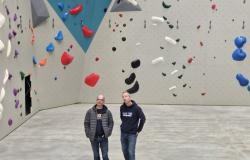While the year 2024 was marked by a general decline in sales in the European automotive sector, the Renault Group was able to stand out with an increase in 1.3% of its global salesreaching a total of 2.26 million vehicles sold. This performance contrasts sharply with that of other major manufacturers, such as the Volkswagen Group, which recorded a drop in 2,3 % over the same period.
Renault's growth is based on a clear strategy: meeting consumer expectations with range of hybrid and electric vehicles competitive and diverse. By adopting an approach focused on sustainability and innovation, the brand has not only managed to maintain its relevance in a challenging market, but also strengthen its positioning among the leaders in electrification.
This positive dynamic also illustrates the impact of internal reorganization operated by Renault in recent years, aiming to reduce costs while accelerating the development of new technologies. In 2024, the brand has consolidated its presence in the main European markets, particularly in France and Spain, where it remains a key player.

The rise of hybrid models
A large part of this success rests on therise of hybrid models of Renault, whose sales increased by 45 % in 2024. These vehicles represented 26% of total group salesa figure that climbs to 40% for the Renault brand alonehighlighting consumers' growing enthusiasm for these transition solutions.
The hybrid SUV that has acquired the reputation of being unbreakable: reliable 4×4 and reasonable price
Hybrid models, which combine energy efficiency and practicalityoffer an ideal response to European customers who are still reluctant to adopt 100% electric vehicles, due to limited charging infrastructure or high costs. Renault was able to capitalize on this demand by offering vehicles like the Clio E-Tech and the Captur Hybridwhich have established themselves as references in their respective segments.
This hybrid strategy allowed Renault to consolidate its market shares while gradually preparing its customers for the transition to electricity. By combining a robust hybrid range and initiatives in favor of innovation, the brand has found a strategic balance between immediate profitability and investment in the future.

The role of the Renault 5 E-Tech in the electric transition
The fourth quarter of 2024 marked a turning point for Renault with the long-awaited launch of the Renault 5 E-Techa modern reinterpretation of the iconic Renault 5, now entirely electric. This iconic model immediately aroused enthusiasm, not only thanks to its retro design and its technological innovations, but also by its competitive pricing positioningmaking electric more accessible.
-The MG ZS Hybrid+ gets a facelift: all the information on the 2025 version
Crown Car of the year 2025 in Europethe Renault 5 E-Tech quickly dominated its segment, particularly in the French and Spanish markets, where it established itself as a preferred choice for city dwellers looking for a practical and economical electric solution. This success is part of Renault's desire to democratize electric vehicles by offering attractive and affordable models.
In addition to its commercial success, the Renault 5 E-Tech plays a strategic role for the brand. It constitutes a key step in Renault's objective to become a leader in the electric vehicle market in Europe. By attracting a varied clientele, from nostalgics to young consumers, this model strengthens Renault's position in the race for electrification while creating a bridge between its glorious past and its technological future.

Electrification strategy and prospects for Renault
Renault is pursuing an ambitious vision in terms of electrification, aiming to make electric and hybrid vehicles the central pillar of its strategy. With a growing share of its sales coming from these models, the manufacturer is committed to strengthening its offering while reducing its carbon footprint. In 2025, Renault plans to launch several new electric models, including the highly anticipated Renault 4ever Trophya compact SUV that will complete the electric range.
The key to this strategy also lies in the expansion of its production and charging infrastructure. With the establishment of factories specializing in batteries in Europe and the collaboration with partners to develop a network of terminals, Renault is positioning itself to meet the growing demand for infrastructure adapted to electricity.
However, challenges remain. Increased competition in the electrified vehicle market, as well as fluctuations in battery raw material costs, require constant agility. Renault will have to continue to innovate, while maintaining a balance between accessibility and profitability.
Building on a year 2024 marked by successes, Renault is moving forward into 2025 with positive momentum. Its ability to combine a robust hybrid offering and attractive electric models demonstrates a clear strategy: lead the European market towards more sustainable mobility while remaining competitive in a rapidly changing sector.





